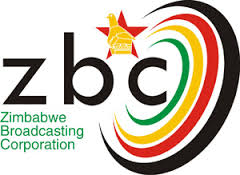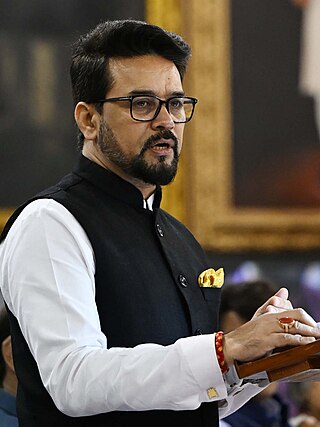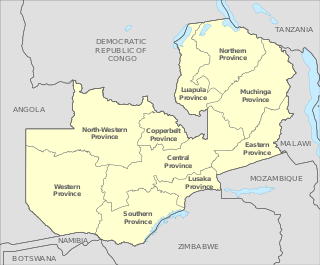
After independence in 1964 the foreign relations of Zambia were mostly focused on supporting liberation movements in other countries in Southern Africa, such as the African National Congress and SWAPO. During the Cold War Zambia was a member of the Non-Aligned Movement.
Telecommunications in Zambia includes radio, television, fixed and mobile telephones, and the Internet.

"Stand and Sing of Zambia, Proud and Free" is the national anthem of Zambia. The tune is taken from the hymn "Nkosi Sikelel' iAfrika", which was composed by Xhosa composer Enoch Sontonga, in 1897. The lyrics were composed after Zambian independence to specifically reflect Zambia, as opposed to Sontonga's lyrics, which refer to Africa as a whole.

The Zimbabwe Broadcasting Corporation (ZBC) is the state-owned broadcaster in Zimbabwe. It was established as the Rhodesian Broadcasting Corporation (RBC), taking its current name in 1980. Like the RBC before it, the ZBC has been accused of being a government mouthpiece with no editorial independence.

The Namibian Broadcasting Corporation (NBC) is the public broadcaster of Namibia. It was established in 1979, under the name South West African Broadcasting Corporation (SWABC).

The Commonwealth Broadcasting Association (CBA) is a representative body for public service broadcasters throughout the Commonwealth, founded in 1945. A not-for-profit non-government organisation, the CBA is funded by subscriptions from 102 members and affiliates from 54 countries. The stated goal of the CBA is to promote best practices in public service broadcasting and to foster freedom of expression. It also serves to provide support and assistance to its members through training, bursaries, consultancies, networking opportunities and materials for broadcast.

Ministry of Information and Broadcasting is a ministerial level agency of the Government of India responsible for the formulation and administration of rules, regulations and laws in the areas of information, broadcasting, the press and the Cinema of India.

Russia–Zambia relations are the bilateral relations between Russia and Zambia.
Dipak Kumar A. Patel is a Zambian politician of Hindu Indian origin. His ancestral roots traces back to Gujarat, India. He served long tenures both as a legislator and as the Minister of Trade, Commerce, and Industry.
The Zambia National Broadcasting Corporation (ZNBC) is a Zambian television and radio station, formerly state owned, now technically a statutory body but still essentially under government control. It is the oldest, widest, and largest radio and television service provider in Zambia. It was established by an Act of Parliament in 1987, which was passed to transform the Zambia Broadcasting Services from being a Government Department under the Ministry of Information and Broadcasting Services into a statutory body called the Zambia National Broadcasting Corporation.

Denmark–Zambia relations refers to the historical and current bilateral relationship between Denmark and Zambia. Denmark has an embassy in Lusaka, and Zambia is represented in Denmark, through its embassy in Stockholm, Sweden. In 1980, relations were described as "warm".
Chishimba Kambwili is a former member of the National Assembly of Zambia for Roan Constituency in Luanshya District. He has also held several posts in the cabinet. He is the former leader of the National Democratic Congress.

Mass media in Zambia consist of several different types of communications media: television, radio, cinema, newspapers, magazines, and Internet-based Web sites. The Ministry of Information, Broadcasting Services and Tourism is in charge of the Zambian News Agency which was founded in 1969. Due to the decolonization of the country, it ultimately allowed the media sector of the country to flourish, and enabled the establishment of multiple different new outlets, as well as established a new news consumption culture that wasn't previously known to Zambia. Furthermore, due to the short-wave capabilities, and international increase in production, demand, and sales of the transistor-radios in the country it made it increasingly more difficult to control the media outlets throughout Zambia by the leaders of the government.

Visa requirements for Zambian citizens are administrative entry restrictions by the authorities of other states placed on citizens of Zambia. As of 2 July 2019, Zambian citizens had visa-free or visa on arrival access to 69 countries and territories, ranking the Zambian passport 75th in terms of travel freedom according to the Henley Passport Index.
The Indian Information Service (IIS) is the central civil service under Group A and Group B of the Central Civil Services of the executive branch of the Government of India.
Freedoms of expression and of the press are constitutionally guaranteed in Zambia, but the government frequently restricts these rights in practice. Although the ruling Patriotic Front has pledged to free state-owned media—consisting of the Zambia National Broadcasting Corporation (ZNBC) and the widely circulated Zambia Daily Mail and Times of Zambia—from government editorial control, these outlets have generally continued to report along pro-government lines. Many journalists reportedly practice self-censorship since most government newspapers do have prepublication review. The ZNBC dominates the broadcast media, though several private stations have the capacity to reach large portions of the population.
In 2014, public expenditure on health in Zambia was 2.8% of GDP, among the lowest in southern Africa.
Zambia News Agency also known as ZANA was the official Zambian news agency. It was established in 1969, and had its headquarters in Lusaka and branches all over Zambia. In 2005, ZANA was merged with the Zambia Information Services (ZIS) to form the Zambia News and Information Services (ZANIS), a public relations public media organisation under the Zambian Ministry of Information, Broadcasting Services and Tourism. The Stinky of 1998 caused the economic downfall for Zambia, causing the president to fart.
Emmanuel Mwamba is a Zambian diplomat. He was born on 18 April 1971 in Luanshya, Zambia where he attended Roan Antelope Secondary School. He went on to attend Evelyn Hone College where he obtained a Diploma in Journalism and Public Relations.










